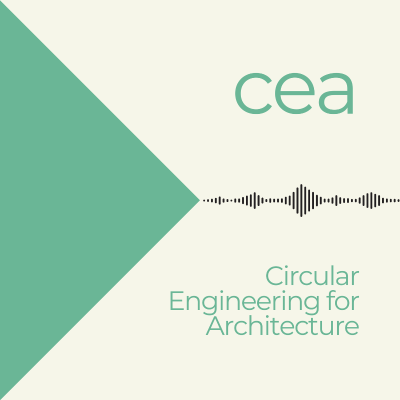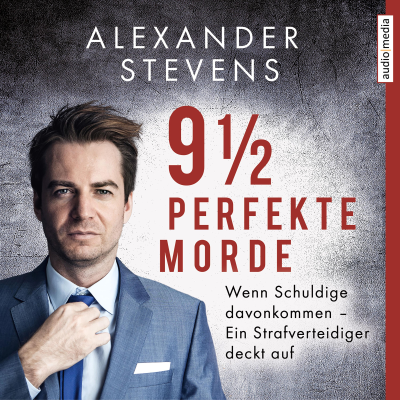
Library of Reuse
Podcast von CEA Lab, ETH Zurich
Specialists in circular engineering for architecture and construction talk about their research, industry trends, and overcoming challenges for a sust...
Kostenlos testen für 30 Tage
Nach der Testphase nur 4,99 € / Monat.Jederzeit kündbar.
Alle Folgen
7 FolgenThe current construction sector is not sustainable. The sector produces 30% of global waste and 40% of human-generated CO2 emissions. It consumes 40% of the resources and energy we use. There is a lot of potential for improvement. Dr. Guillaume Habert [https://sc.ibi.ethz.ch/en/people/prof-dr-guillaume-habert.html] is professor of the ETH Zurich Chair of Sustainable Construction. In this podcast, he talks with students Natalie Feakins and Noah Pasqualini about sustainability in the built environment and how life cycle analysis, green labels, and concepts such as a material diet can help transform the construction industry. They highlight how projects like the Kunsthalle exhibition, organized by the Chair of Circular Engineering for Architecture at ETH Zurich, can have an impact on circular construction.
Scanning is essential for knowing what materials are in buildings in order to renovate, reuse, or deconstruct them sustainably. New and ever improving technologies help engineers understand what materials are in a building so that they can better plan what to do with them. Romain Géry is the director of Scanways [https://scanways.io/en/], a company based in Geneva that offers specialized digital surveying for architecture, engineering, and construction. Scanways produces high quality and high precision 3D scans, building information models, and virtual reality tours of buildings. Episode credits: Interview by Catherine De Wolf and Jennifer Bartmess. Produced and edited by Jennifer Bartmess. Music by Coma Media. © Chair of Circular Engineering for Architecture, ETH Zurich
Many of the current efforts to mitigate climate change and its effects rely on digital solutions. But what would our designs for landscapes and buildings of the future look like if we slowed down and paid more attention to the traditional knowledge that humans have acquired over millennia? Julia Watson is an urban designer and best-selling author on nature-based technologies for climate resilience. She teaches urban design at Colombia University in New York. In this interview, she discusses climate change awareness and indigenous technologies in sustainable building and education. Read more about Julia Watson [https://www.juliawatson.com] and look into her new book, Lo-TEK [https://www.taschen.com/en/books/architecture-design/04698/julia-watson-lo-tek-design-by-radical-indigenism]. Episode credits: Interview by Catherine De Wolf and Deepika Raghu. Produced and edited by Jennifer Bartmess. Music by Coma Media. © Chair of Circular Engineering for Architecture at ETH Zurich
Human consumption far oversteps planetary boundaries. Limiting consumption and economic growth seems like an obvious strategy for cutting emissions and protecting the environment. But Alessio Terzi [https://www.alessioterzi.eu], economist for the European Commission, explains why degrowth is not feasible for achieving our sustainability targets. He also discusses his 2022 book, Growth for Good, Reshaping Capitalism to Save Humanity from Climate Catastrophe [https://www.hup.harvard.edu/books/9780674258426]. Episode credits: Interview by Catherine De Wolf. Produced and edited by Jennifer Bartmess. Music by Coma Media. © Chair of Circular Engineering for Architecture, ETH Zurich
Digitalisation is crucial for making construction more sustainable and circular. But the sector is slow to digitalise its processes and often relies on fragmented data. Martin Fischer [https://profiles.stanford.edu/martin-fischer], professor of civil and environmental engineering at Stanford University, explains how digitalisation improves project management, automation, and building information modelling to better navigate tradeoff decisions for more sustainable construction. Episode credits: Interview by Brandon Byers and Iro Armeni. Produced and edited by Jennifer Bartmess. Music by Coma Media. © Chair of Circular Engineering for Architecture, ETH Zurich
Nutze Podimo überall
Höre Podimo auf deinem Smartphone, Tablet, Computer oder im Auto!
Ein ganzes Universum für Unterhaltung für die Ohren
Tausende Hörbücher und exklusive Podcasts
Ohne Werbung
Verschwende keine Zeit mit Werbeunterbrechungen, wenn du bei Podimo hörst
Kostenlos testen für 30 Tage
Nach der Testphase nur 4,99 € / Monat.Jederzeit kündbar.
Exklusive Podcasts
Werbefrei
Nicht-Podimo-Podcasts
Hörbücher
20 Stunden / Monat

































